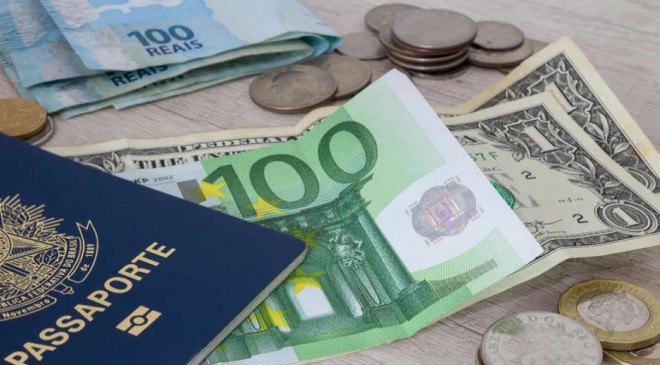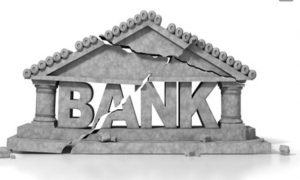Around late December and early January every year, the internet unloads an avalanche of money-themed New Year’s advice — resolution fuel for people trying to break old habits and start new ones. Well-intentioned as it all might be, the annual blitz can feel a bit overwhelming.
The good news is, you really only need to worry about a handful of things.
“Make more, save more, invest more, give more, spend less, stress less,” said Josh Richner of the National Legal Center. “Easier said than done, of course, but consistent incremental changes in these areas will have a big impact over time.”
“Consistent incremental changes” are all that’s needed to form the habits that can lead to a healthy, happy and prosperous 2022.
Here’s where to start.
Get in the Habit of Educating Yourself
Jacqueline Gilchrist, the founder of Mom Money Map, is all about self-improvement through self-education. She wants people — especially young people — to make it a point to read about money whenever they can in 2022.
“Every time I read a personal finance book, I get a new perspective on how I can better grow my wealth,” Gilchrist said. “For example, after reading the book ‘Your Money or Your Life’ by Vicki Robin and Joe Dominguez, I realized how you don’t have to trade your time for money. There are many passive income streams like dividends and rental income that you can nurture that will help you reach financial independence earlier.”
Get in the Habit of Scrutinizing Purchases
For Angela Bradford of World Financial Group, the best change a person could make is to start second-guessing every purchase.
“The habit of saving is exactly that, a habit — and it can be taught,” Bradford said. “Thinking before you spend money — do I really need this?”
You should also get in the habit of not viewing money as a means of competition. Bradford discussed the importance of people “being conscious of where their money is going and not caring about keeping up with the Joneses.”
Get in the Habit of Eliminating Temptation
Most of us have subscribed — knowingly or unknowingly — to more retailer newsletters than we would care to remember. In most cases, they’re worms on hooks — bait for your money.
“Retailer newsletters are usually sent out pretty regularly,” said Julie Ramhold, consumer analyst with DealNews. “And while they can be helpful if you’re watching for a sale, there are some that seem to always be having sales. If these newsletters tempt you into spending when you hadn’t otherwise planned to do so, it’s worth unsubscribing. You can always subscribe again later if you want to, especially around times when they may be having truly good sales, like around major holidays like Memorial Day or Black Friday.”
Get in the Habit of Tweaking Boilerplate Money Advice
If you stumble upon what seems like good financial advice, don’t be shy about following it as an outline or incorporating it into your strategy. But remember, if it was written for the masses, it wasn’t written for you.
“Everyone’s financial situation, needs, and goals are unique,” said Drew Parker, creator of The Complete Retirement Planner. “So it is particularly important not to rely on guesses, assumptions, generic benchmarks, or any advice that presents broad generalizations as specific goals. To know exactly where you stand, where you are headed, and how to get where you want to go, every household, regardless of their net worth or stage of life, owes it to themselves to create a comprehensive, individualized financial plan. This is a crucial step in assessing your current and future financial health and acts as a roadmap to becoming financially secure. It helps you to establish realistic goals, understand the direct impact that current decisions have on long-term results, and to track your progress.”
Get in the Habit of Plugging the Money Leaks in Your House
Throughout the year, but particularly in the wintertime, it’s likely that your house is slowly but steadily leaking money through heat transfer and other energy-gobbling inefficiencies. Get in the habit of doing basic seasonal assessments a few times a year.
“Do a simple check around your home to save on energy this winter,” said Aimée Bennett, APR, principal of Fagan Business Communications. “Check your home carefully for any spots where cold air can get it. Pay special attention to windows and doors. Then, install weather stripping and door sweeps or ‘draft dodgers.’ Also check outlets, locks, air conditioning units, and recessed light fixtures.”
The Department of Energy’s Energy Saver program offers tips and tutorials on DIY home energy assessments.
Get in the Habit of Throwing Extra Cash at Your Debts
If you do cash in on lower heating bills, dedicate at least some of those savings to paying down more debt than you have to.
“Find a way to pay extra, even a little bit extra, on your outstanding debts,” said Melanie Hanson, editor in chief of EDI Refinance. “Even an extra $20 per month can add up quickly in terms of savings on interest payments.”
Get in the Habit of Keeping Good Company
Tell me who your friends are and I’ll tell you who you are, the old expression goes — and if life seems like one string of bad luck after another, it might be time to surround yourself with some new people.
“If you are not happy with where you are in life, then find new friends,” said Jason Parker from Parker Financial and the founder of RetirementBudgetCalculator. “Coach John Wooden said we become the average of the five people we spend the most time with. If you are broke, unhealthy, or depressed, look at the people you are surrounding yourself with. Wealthy people hang around with wealthy people. Healthy people have healthy friends. Birds of a feather flock together.”
If things are going well, on the other hand, take the time to be grateful for the people around you.
“If you are happy with where you are in life, be sure to recognize how good you have it,” Parker said. “There are few things worse than people who have it all, and yet complain about how bad things are. We have to train ourselves to focus on the good.”































